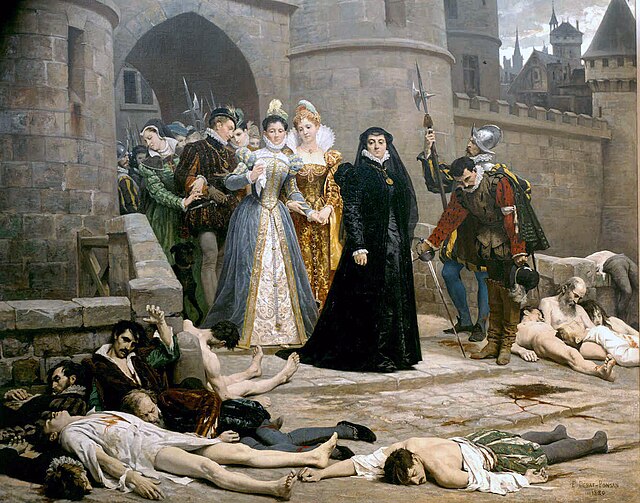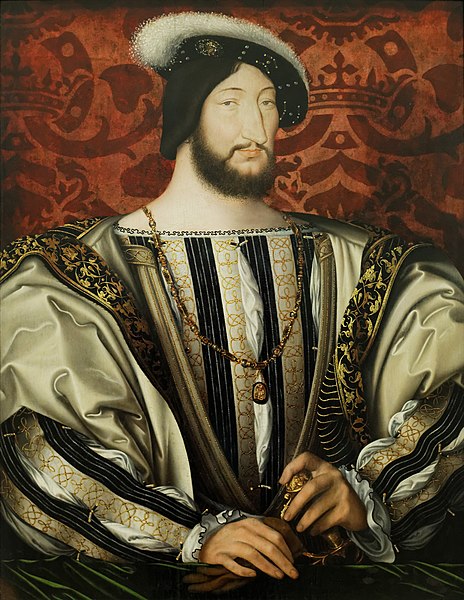During the sixteenth and seventeenth centuries, politiques were Western European statesmen who prioritized the strength of the state above all other organs of society, including religion. During the French Wars of Religion, this included moderates of both religious faiths who held that the country could only be saved by the restoration of a strong monarchy which rose above religious differences. The term politique often had a pejorative connotation of moral or religious indifference, especially after 1568 in contrast with the radical Catholic League calling for the eradication of Protestantism in France. By 1588 the politiques were seen by pious detractors as a faction more pernicious than heretics.
Catherine de' Medici and her courtiers outside the Louvre, after the St. Bartholomew's Day massacre.
The French Wars of Religion were a series of civil wars between French Catholics and Protestants from 1562 to 1598. Between two and four million people died from violence, famine or disease directly caused by the conflict, and it severely damaged the power of the French monarchy. One of its most notorious episodes was the St. Bartholomew's Day massacre in 1572. The fighting ended with a compromise in 1598, when Henry of Navarre, who had converted to Catholicism in 1593, was proclaimed King Henry IV of France and issued the Edict of Nantes, which granted substantial rights and freedoms to the Huguenots. However, Catholics continued to disapprove of Protestants and of Henry, and his assassination in 1610 triggered a fresh round of Huguenot rebellions in the 1620s.
The St. Bartholomew's Day massacre (1572) by François Dubois
John Calvin, whose ideas became central to French Protestantism
After an initial period of tolerance, Francis I repressed Reformist ideas.
Massacre of Mérindol, as imagined by Gustave Doré (1832–1883)





